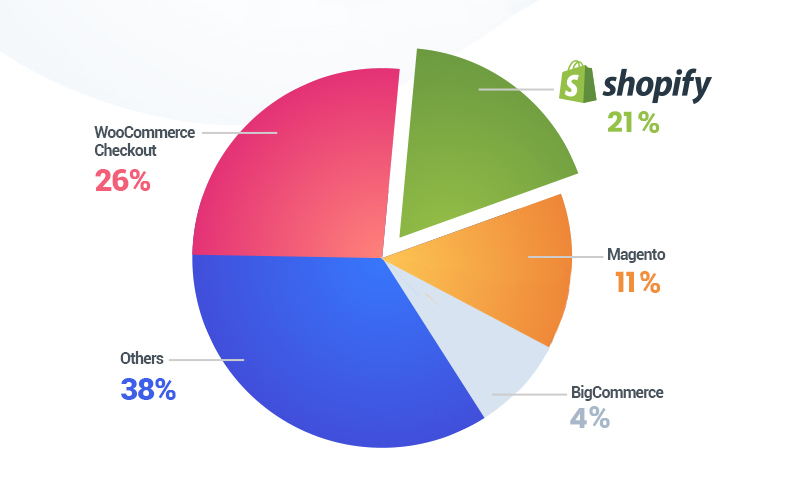An eCommerce platform is a software application that allows online businesses to manage their website, marketing, sales, and operations.
An eCommerce platform needs a search feature that lets customers find a specific product, a basket feature that lets them manage their order, and a payment feature.
An eCommerce platform is a software application where both parties, the seller and the consumer, come and play their role. Essentially, a consumer should be able to use an e-commerce platform to discover products, shop around using a basket and then check out.
Types of E-commerce Platforms
E-commerce is purchasing and selling activities happening over the Internet. The different types of eCommerce include
- business-to-business (websites such as Shopify),
- business-to-consumer (websites such as Amazon),
- consumer-to-consumer (websites such as eBay) and
- consumer to business (when a consumer writes reviews or when a consumer gives a useful idea for new product development then that consumer is creating value for the business if the business adopts the input).
Why Use an E-commerce Platform
eCommerce platforms have all the components you need to operate and grow your online business without complicating your day-to-day operations. Using an eCommerce platform is cheaper than creating software from scratch and more comfortable than using many plugins.
Elaborate eCommerce platforms facilitate the purchasing process for your customers, prevent system failures, technical issues, and help you troubleshoot them whenever they pop up. So, you can spend less time helping your clients with shopping and concentrate on improving your sales process and boosting your revenue.
Regardless of whether your business is B2B or B2C, eCommerce platforms are an essential part of any online operation as it provides your company an accessible way to share and sell products online to a wide pool of potential customers. The way your company interacts with clients, customers, and employees is another benefit of using a good eCommerce platform.
The Top E-commerce Platform
Shopify: Shopify is a commerce platform that allows anyone to set up an online store and sell their products. Merchants can also sell their products in person with Shopify POS. This eCommerce website builder has features for everyone from beginners to eCommerce experts. Shopify is now the leading commerce platform designed for businesses of all sizes. Whether you sell online, on social media, in-store, or out of the trunk of your car, Shopify has you covered.
Magento: Magento is an open-source eCommerce platform written in PHP. It uses multiple other PHP frameworks such as Laminas and Symfony. Magento is an eCommerce platform built on open source technology that provides online merchants with a flexible shopping cart system, as well as control over the look, content, and functionality of their online store. Magento offers powerful marketing, search engine optimization, and catalog-management tools.
BigCommerce: BigCommerce is an online store builder (hosted shopping cart software) that powers tens of thousands of online stores in more than 150 countries. It allows you to do everything yourself, including add products, upload photos, process orders, create pages, creates discount coupons, and more. You can also design your store with it, using drag and drop panels.
WooCommerce: WooCommerce is the most popular way to build an eCommerce store for successful sites. WooCommerce takes that basic WordPress operating system and turns it into a fully-functioning eCommerce store. WooCommerce is the world’s most popular open-source eCommerce solution. WooCommerce offers many helpful features, like order tracking, customer engagement, delivery status updates, inventory management, and more. With over 27 million downloads to date, WooCommerce powers 99% of all WordPress stores. WooCommerce has a low degree of difficulty. It’s easy to use for beginner site owners.

Tips To Help You Choose an E-commerce Platform
- Ask the right questions and start a free trial.
- Compare the cost of Platforms.
- Determine which platform is best for your store’s design.
- Test store functionality and ease of use.
- Determine the scalability and customizability of the platform.
Common Mistakes To Avoid When Choosing An E-commerce Platform
- Choosing the Wrong eCommerce Platform.
- Not investing in security.
- Creating your own eCommerce CMS.
- Bad customizations.
- Too many features.
- Not having a partner to help build your platform.